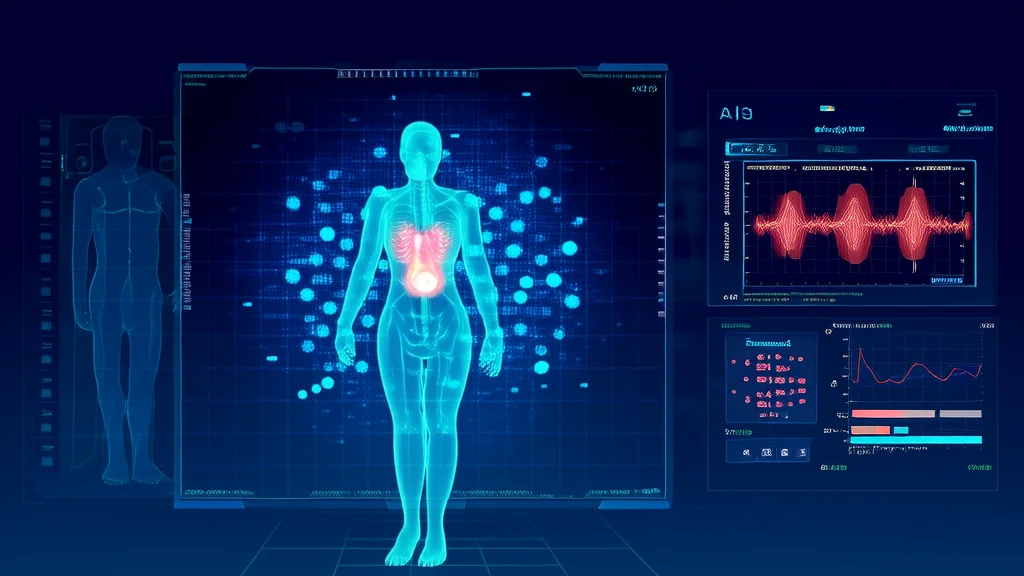The Transformative Power of AI: Real-World Impact and Practical Applications
As we navigate the rapidly evolving landscape of artificial intelligence, it's clear that the technology is no longer just a futuristic concept. From healthcare to retail, and from education to environmental conservation, AI is making a tangible difference in our daily lives. Today, we'll explore some of the most compelling real-world applications of AI, focusing on its practical implications and the human stories behind these innovations.
AI in Healthcare: Revolutionizing Patient Care and Diagnosis
One of the most promising areas for AI is in healthcare, where it is transforming the way doctors diagnose and treat patients. For example, Google Health has developed an AI system that can detect breast cancer with 11.5% fewer false positives and 29% fewer false negatives compared to traditional methods. This means that more cancers are being caught early, and fewer women are undergoing unnecessary biopsies.
Practical Impact: Improved accuracy in cancer detection leads to better patient outcomes and reduced healthcare costs. The AI system has been tested in multiple hospitals, including the University of California, San Francisco, and the results have been consistently positive.
Real-World Example: At the University of California, San Francisco, the AI system was used to analyze mammograms, and it successfully identified several cases of breast cancer that were initially missed by radiologists. This early detection allowed for timely treatment, potentially saving lives.
Future Implications: As AI continues to improve, we can expect to see more widespread adoption in other areas of medicine, such as cardiology and neurology. This could lead to earlier diagnosis and more personalized treatment plans, ultimately improving the quality of care for patients around the world.
AI in Retail: Enhancing the Shopping Experience
Retail is another industry where AI is making a significant impact. Amazon Go, the cashierless convenience store, uses AI and computer vision to allow customers to walk in, grab what they need, and walk out without ever standing in line. The technology tracks what items customers pick up and automatically charges their Amazon account when they leave the store.
Practical Impact: For consumers, this means a faster, more convenient shopping experience. For retailers, it reduces operational costs and provides valuable data on customer behavior, which can be used to optimize inventory and marketing strategies.
Real-World Example: In Seattle, the first Amazon Go store opened in 2018 and has since expanded to over 30 locations across the United States. Customers have reported high satisfaction with the seamless shopping experience, and the stores have seen a steady increase in foot traffic.
Future Implications: As more retailers adopt AI-driven technologies, we can expect to see a shift towards more personalized and efficient shopping experiences. This could include AI-powered recommendations, dynamic pricing, and even virtual fitting rooms, all of which will enhance the overall customer experience.
AI in Education: Personalizing Learning for Every Student
Education is another field where AI is making a significant difference. Carnegie Learning, an educational technology company, has developed an AI-powered math tutoring platform that adapts to each student's learning style and pace. The platform uses machine learning algorithms to provide personalized feedback and tailor the content to the individual needs of each student.
Practical Impact: By providing personalized instruction, the platform helps students learn more effectively and at their own pace. This can lead to improved academic performance and a more engaging learning experience.
Real-World Example: In a study conducted by the U.S. Department of Education, students who used the Carnegie Learning platform showed a 50% improvement in math proficiency compared to those who did not use the platform. The platform has been implemented in over 1,000 schools across the United States, with positive feedback from both teachers and students.
Future Implications: As AI continues to advance, we can expect to see more personalized and adaptive learning tools in the classroom. This could help bridge the gap between different learning styles and ensure that every student has the opportunity to succeed, regardless of their background or circumstances.
Conclusion
From healthcare to retail and education, AI is driving real, tangible improvements in our daily lives. These examples demonstrate the power of AI to transform industries and create more efficient, personalized, and effective solutions. As we continue to innovate and push the boundaries of what AI can do, the potential for positive change is limitless. Stay tuned for more updates on how AI is shaping our future!
